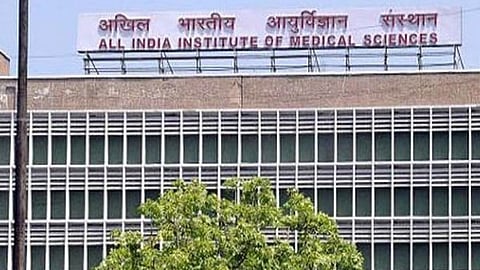

NEW DELHI: The National Green Tribunal has hauled up AIIMS Delhi to step in after alarming levels of toxic metals, chromium, mercury and more, were found coursing through the veins of residents in Uttar Pradesh’s Kanpur Nagar, Kanpur Dehat and Fatehpur.
The Tribunal Bench, comprising of a chairperson, Justice Prakash Shrivastava, Judicial Member Sudhir Agarwal and an expert member A. Senthil Vel, also noted that despite health camps exposing this silent poisoning, official medical intervention has remained shockingly negligible.
The NGT bench, in its order dated July 1, criticised state authorities for failing to provide clean drinking and basic necessities of health care. AIIMS has been tasked with assessing the health impact and required treatment.
During the proceedings, the NGT observed that the situation in the affected areas was “pathetic” with toxicants stating that chromium dump is involved in the matter but mercury, fluoride and iron have also been found in the ground water.
The issue pertains to industrial pollution, especially from tanneries in Jajmau and chromium dumps in Rania and Rakhi mandi.
In Fatehpur, for example 39 individuals tested positive for chromium, with 26 of them also showing mercury presence in their blood. The Tribunal took a serious note on this observing one of the patients named Neelam whose chromium levels were recorded at 46.5 µg/L well above the reference range of 0.05-1.4 µg/L.
According to the Medical Health and Family Welfare Department residents were exhibiting symptoms such as respiratory, neurological disorders and skin conditions. However medical treatments remain limited to basic medications like multivitamins without any targeted detoxications.
“We do not notice any significant noticeable improvement. Thus, we are of the view that probably the seriousness of the matter has not been understood by the concerned authorities till now," the Tribunal said in its order.
The NGT has authorised AIIMS to form a multidisciplinary expert team, including the specialists in neurology, nephrology, oncology, and gastroenterology to assess the health impact and recommend evidence based treatment protocols.
The tribunal has also directed AIIMS to study the reports which are already submitted, while further instructing them to conduct the field assessments in the “contaminated zones”.
“Clean and healthy protocols are to be maintained with immediate medical help for the patients and strict containment of chromium dumps,” the bench remarked. The case has been listed for further hearing on October 7.